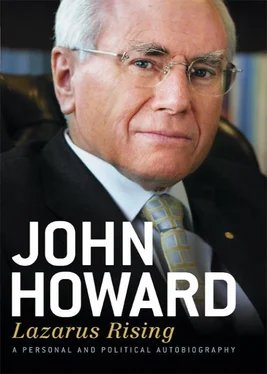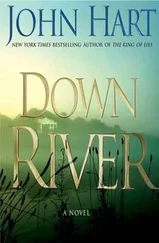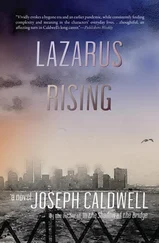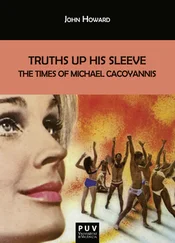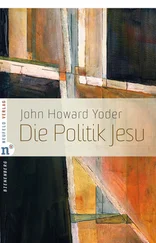When the people decide to change their government, they cut the new man a lot of slack. They are slow to admit to themselves that they may have made a mistake. As a consequence, the public will accept a change in the direction of a fresh government early in its new term, provided a proper explanation is given. Gough Whitlam seemed oblivious to these political realities. He received an early warning from the electorate that they were not all that enchanted with the beginnings of his Government when Labor suffered a swing of 7 per cent against it in the Parramatta by-election held in September 1973. The seat was won by Philip Ruddock. He became a close and trusted colleague in my Government. Philip was an excellent Immigration Minister and Attorney General. In March of 2010 he became the third-longest-serving member of the House of Representatives since Federation.
The swing in the by-election was much larger than might have been expected for a newly elected government after less than 12 months in office. A lot of this was due to growing unease about the economy; some to the already apparent erraticism in the new Government’s style; and, as a local issue, Gough Whitlam’s arrogant declaration that the people of western Sydney would have the city’s second airport at Galston (which was close to the Parramatta electorate) didn’t help matters for Labor.
The by-election should have been a real warning for Whitlam, but it wasn’t. If anything, he pushed even harder on the accelerator. It gave Bill Snedden, the Opposition leader, a huge boost, perhaps engendering some of the false optimism which led the opposition to threaten the blocking of supply some months later.
The Liberal Party of late 1973 was static, policy-wise. Its personnel were beginning to change, but only gradually and not at the top. Certainly McMahon had gone from the leadership, but not from parliament. Nigel Bowen had gone to the Bench, but other big names from government days, such as Snedden, Lynch, Fraser, Peacock and Chipp remained, as did the National Country Party trio of Doug Anthony, Ian Sinclair and Peter Nixon. In fact, given the length of time the Coalition had been in power prior to 1972, there was remarkably little turnover. That was because those occupying senior positions were still relatively young themselves. Those on the backbench tended to be older, and it was there that generational change would begin in 1974.
Meanwhile, Janette and I had scraped together enough money to buy a home unit near Wollstonecraft station, in Sydney. It is the suburb in which we lived until I became Prime Minister, and the suburb to which we returned after the end of my parliamentary career. One of our happy recollections of living at the unit was to wake up on Sunday mornings to the sound of tennis being played on the grass court in a large home next door. That home was owned by the L’Estrange family. Dr Jim L’Estrange was one of Sydney’s most respected paediatricians. He was highly regarded in the Catholic Church, which conferred on him the honour of a papal knighthood. One of his sons, Michael, would become one of my closest advisors as PM.
As 1973 drew to a close, Australians had begun to feel nervous about Whitlam’s lack of interest in economic matters. They were also troubled by Lionel Murphy’s provocative ‘raid’ on the Australian Security Intelligence Organisation (ASIO), when, accompanied by federal police, he marched unannounced on the agency’s headquarters demanding access to papers. The Attorney General did not usually behave like this. ASIO may not have been everyone’s cup of tea, but it was pledged to protect the national interest. Murphy also tried to radically change the divorce laws by regulation, rather than legislation. Inevitably this was blocked by the Senate. The new Government was beginning to unsettle people.
Ensconced in our unit in Wollstonecraft, Janette and I were blissfully enjoying the early years of married life. Politics remained the main preoccupation. From almost the moment we had met, it was common ground between us that I would go into politics. I wanted it, and Janette wanted it for me. I had standing and respect in Liberal circles, but the challenge was to realise my ambition.
In the second half of 1973, the NSW division of the Liberal Party decided to call nominations for the preselection of candidates for safe seats in the federal parliament. I knew the moment of truth had arrived. It was inevitable that there would be a number of retirements, and possibly serious challenges to other sitting members of long standing. Both John Cramer in Bennelong and Harry Turner in Bradfield announced that they would retire. Naturally, I nominated for Bennelong, where we lived. I knew that I faced a tough battle.
My principal rival was Peter Coleman, the state MLA for the electorate of Fuller, which was entirely enclosed within Bennelong.
Coleman had a lot of support. Cramer backed him quite strongly, regarding me as a bit of an interloper, and because I was metropolitan vice-president of the division, he saw me as the head-office candidate. That was not entirely accurate. Although I had a close association with John Carrick and, as well, had developed a good friendship with Jim Carlton, the new general secretary, both of them had a high regard for Peter Coleman.
The committee to choose a candidate then comprised 50 people. Thirty were from the local branches in Bennelong, broadly according to the membership size of each branch, and the remainder from the membership of the state executive and the state council of the party. The logic of this approach was that a mixture of locals and others, with the locals having a majority, would more often than not produce the right result.
It will sound self-serving but, at that time, I thought this was a very balanced way to choose candidates. Some years ago I became a strong supporter of the branch plebiscite system, in which every financial member of the party in a given electorate, perhaps subject to some minimum membership time, has a vote. I have more to say about this at the conclusion of the book.
I knew virtually all of the 50 people who were to make the choice in Bennelong; some well, others only casually. Apart from Coleman and me, there were 21 other candidates. It was a very strong field. Although not absolutely blue-ribbon, Bennelong at that time was regarded as a safe Liberal seat.
Campaigning for the preselection meant some personal visits — but not too many, because the culture of the party at that time deprecated the hard sell — as well as participating in various branch forums with question-and-answer sessions. I had a good idea how the 20 people from state executive/state council would vote, but was less certain about how the locals would go. Bennelong was exactly composed of the two state electorates: Fuller, held by Coleman, and Lane Cove, held by Ken McCaw, Attorney General in the Askin Government, who pretty well kept out of local party political matters. The branches in Fuller were loyal to Coleman, but those from the Lane Cove end were up for grabs.
There was a bit of drama the day before the preselection. Whitlam had called a referendum to secure Commonwealth power to control both prices and wages. It was an unworkable notion, and despite public concern about inflation, the proposal was doomed to defeat. Liberal workers in Bennelong, including most of the preselectors, manned polling booths in support of the ‘no’ case. John Cramer, as the sitting member, visited all of the booths in his electorate, and lobbied hard for Coleman.
Some of Coleman’s supporters alleged that I had not done enough to keep the polling places in my part of the electorate adequately staffed with volunteers. These were signs that I was seen as a big threat to Coleman, who many observers originally had assumed would walk it in because he was already a local state member. My mood was far from good the night before the fateful day, which had been appointed for Sunday 9 December 1973 at the Menzies Hotel in Sydney. I was very nervous about what had happened during Saturday, and Janette had to keep telling me to concentrate on my speech and forget about other things.
Читать дальше
